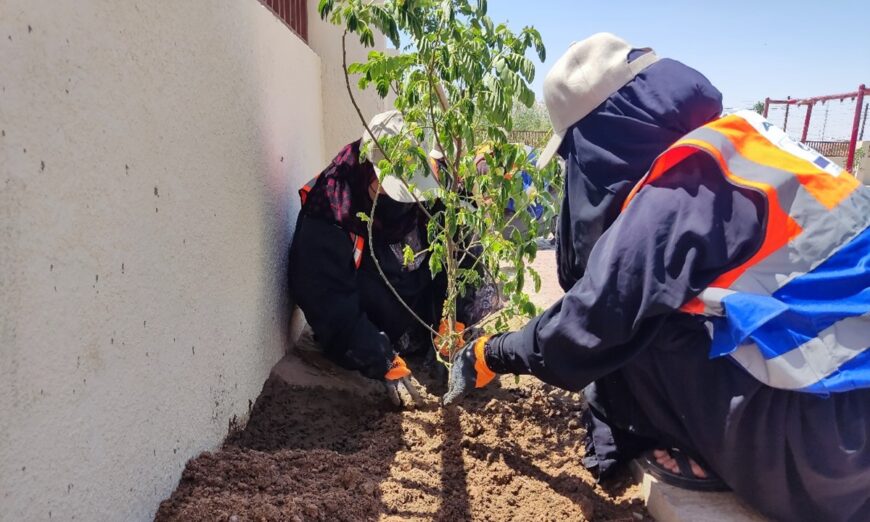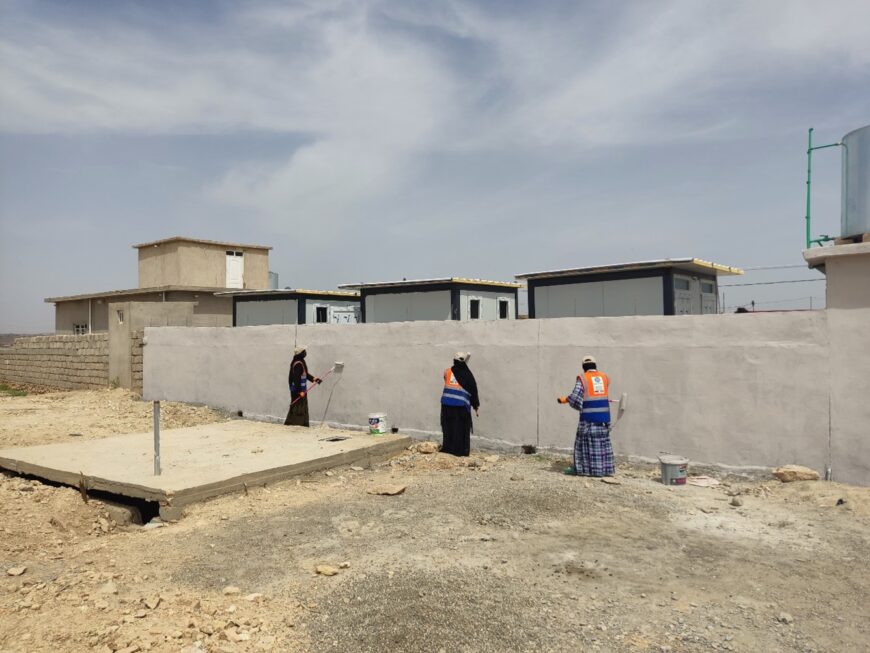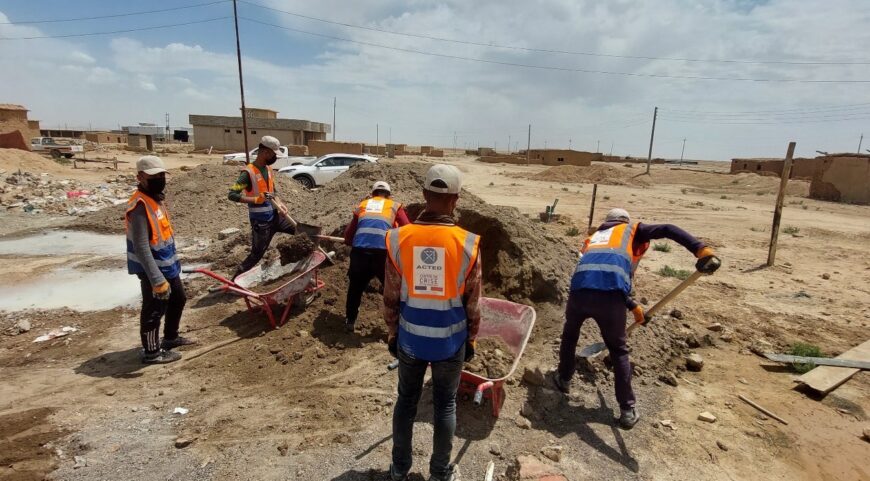Reinforcing communities after a conflict – Quick Impact Projects in Iraq
Four years after the end of large-scale military operations against non-state armed groups, the humanitarian context in Iraq remains fragile, characterised by protracted internal displacement; eroded national social cohesion; extensive explosive ordnance contamination; and incomplete rehabilitation of housing, basic services and livelihoods opportunities. Over 2.5 million people are still in need as a result of the conflict, with over 900 thousand people in acute need, reaching extreme and catastrophic levels.
In order to reinforce and rebuild basic services, ACTED implemented eight Quick Impact Projects (QIPs) in 2022 through a Cash for Work approach. The QIPs were implemented in the Ninewa governorate across Sinjar, Tel Afar and Mosul districts.
Through CDCS funding, ACTED implemented eight QIPs across three districts in Ninewa governorate, ranging from public services such as roads, parks, water stations and schools. These QIPs were partially conducted also through a Cash for Work (CFW) component providing short-term income generating opportunities to 260 households.
Supporting Quick Impact Projects
ACTED proposed to contribute to the recovery of Ninewa Governorate by implementing Quick Impact Projects to bridge the gap between humanitarian response and in areas with increased returnees and severity of need. QIPs are designed to provide an intervention that can alleviate bottlenecks, creating both immediate, longer-term, direct, and indirect benefits to the target community. Each QIP was designed to improve local populations’ access to services using an area-based approach, ensuring to benefit the wider community rather than targeting returnee or displaced households only. This approach consolidated ongoing efforts by government, humanitarian and, development partners to set conditions for durable solutions to protracted displacement.
As the needs of the eight sites selected and rehabilitated vary, the impact of the project on the needs of women, men, boys, girls and vulnerable individuals ranged from increased safety, increased water pumping efficiency, safer water, increased student registration, reduction of harmful wastewater, and provision of safe spaces for recreation and community gathering. ACTED believes that to ensure the sustainability, continued operation, and lasting impact of a QIP, active engagement with local structures is imperative. Through engagement with local authorities and a sustained community consultation process, ACTED aimed to increase community level ownership of the QIP and absorb them in localised decision-making. As a result, ACTED rehabilitated two water pump stations in Mosul, one water network in Mosul, parks in Sinjar and Tel Afar, two schools and one street in the Mosul district.

Rehabilitation through Cash for Work
Part of the project aimed to support short-term income generating opportunities through CFW, to provide temporary emergency livelihood support to the 260 vulnerable individuals in the targeted communities. In doing so, vulnerable individuals received direct cash assistance, working towards reducing dependence on negative-coping mechanisms such as borrowing money and child labour. This contributed towards addressing financial insecurity, encouraging local economic growth, and consequently tackling a key driver of inter-communal tensions in areas of return.
Approximately 632,000 IDPs and returnees have emergency livelihoods needs, among them, 32,000 are in acute need.
Women and girls, and particularly female-headed households, are socioeconomically more vulnerable and face barriers in establishing livelihood sources through employment or self-employment and are therefore at risk of resorting to harmful coping strategies.



